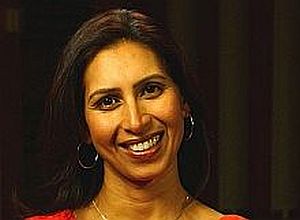Every year medical schools graduate as doctors to treat the wider public, one or two students whom they know, in their hearts, they wouldn't let near their own families, writes Dr Ranjana Srivastava, an Australian oncologist, award-winning author and Fulbright scholar, in The Guardian.
Srivastava writes:
“It’s been difficult,” a colleague grimaced while handing over the reins of attending physician and shortly I saw why. Halfway through the ward round, I realised that the intern didn’t know the patients but worse, didn’t seem to care. The intern rebuffed patients, was disdainful towards the nurses and rude to other doctors. Requested to assess a fallen patient, they outright fabricated an account to say he was fine.
In fact, as we discovered later on the round, the man had suffered a stroke and the nurse said the intern had never come, hinting it wasn’t the first time. I was dumbstruck by this breach of the most sacred tenet of medicine – integrity towards patients. I was angered by the deception but most of all, pained to think of the harm done to an unsuspecting patient.
Subsequently, many days were notable for an irregularity. If it wasn’t an upset patient, it was a troubled nurse or an appalled doctor. The team would diplomatically correct course where possible but what kept me awake at night was the things we didn’t know about our multiplying patients.
What if the renal failure was not improving? What if the X-ray was abnormal? What if the family was never notified? While everyone worked overtime to make sure, my resentment grew but I also feared that my warning wouldn’t be enough, and I’d end up being accused of bullying or something that would tarnish my own young career. My attempts to help the intern proved fruitless and as painful weeks passed, I felt the dilemma in my bones. I hoped that no family of mine encountered this person and prayed that someone more experienced (or principled) than me would report the conduct.
My misgivings came full circle when decades later, I came across a veteran doctor refusing to let the on-call senior specialist near his elderly mother. That specialist was my former intern. As my own experience flashed before me, I uncomfortably realised that doctors would defend their own from problematic colleagues but let unsuspecting others bear the brunt.
Earlier this year, I came across this mea culpa in the New England Journal of Medicine.
“Every spring at US medical school commencements, deans of student affairs and curriculum stand on stage, pledge along with the graduating class to do no harm and hood their students, shake their hands, and confer their medical doctorate degrees. All the while, they know in their hearts that there are one or two (or possibly more) of these new doctors whom they would not allow to care for their family. Aware of these students’ academic limitations or unprofessional behaviour, the deans nonetheless allow them to graduate. We believe that allowing inadequate or inappropriate candidates to become doctors is unacceptable, and we cannot continue to neglect our responsibility in this way.”
Despite undertaking rigorous exams which demonstrate intellect, some medical students simply lack the professionalism and human skills to become a sound doctor. Among the reasons why their peers or superiors trust in remediation rather than disciplinary action are privacy laws, debt, sympathy, compassion and mental illness. No one wants to be the one to pick on someone whose luck is down. Then there are external factors. In the case of students, academic boards and university presidents, who are removed from the action can nonetheless overturn the considered decision of an immediate supervisor due to fear of losing reputation or attracting a lawsuit.
What happens when a university kicks the can down the road, and makes the failing medical student someone else’s problem? The same as what happens when a hospital tolerates unprofessional conduct, hoping it will go away. Removed from the relative confines of medical school, practising doctors are even harder to sanction – it’s easier to be seen to cooperate with offending doctors and ignore the inconvenient truth that for a small subset of doctors remedial efforts remedy nothing.
Recently a surgeon-turned-businessman was accused of misrepresenting crucial data about COVID-19, published and later retracted by prestigious journals and relied on by millions of health professionals to guide patient care. The dramatic results shook public confidence and impacted the cautious work of scientists who had to waste time substantiating their doubts.
The New York Times spoke to more than 24 former colleagues of the doctor, suggesting a concerning pattern of behaviour as a resident. A colleague quoted in the article described him as “essentially a giant roadblock that you had to work around”. This description rings true for doctors everywhere but it wasn’t just his peers who said this, reportedly so did his some of his supervisors who questioned his professionalism although he was promoted anyway. Patients pay a prolonged and heavy price when we let doctors “fail upward”.
Those in the know can at least sidestep the problem of the unprofessional or unsafe doctor, but our patients can’t. Purported fairness to an individual can inflict harm on an entire society and sometimes the most helpful thing is to redirect aspiring doctors to a more suitable profession without loss of face.
We must challenge medical schools to ensure that every student they graduate must be someone they would allow to treat their own family. The same should apply to doctors responsible for supervising trainees.
Doctors at every stage of training who are good enough for our patients should be good enough for our parents. This standard may prompt us adjust our own conduct and make us more mindful of the duty to protect all patients, not just the ones in front of us. The highest duty of medicine is to serve society before self.
[link url="https://www.theguardian.com/commentisfree/2020/aug/05/many-doctors-have-colleagues-they-wouldnt-want-to-treat-their-own-family"]Full report in The Guardian[/link]

